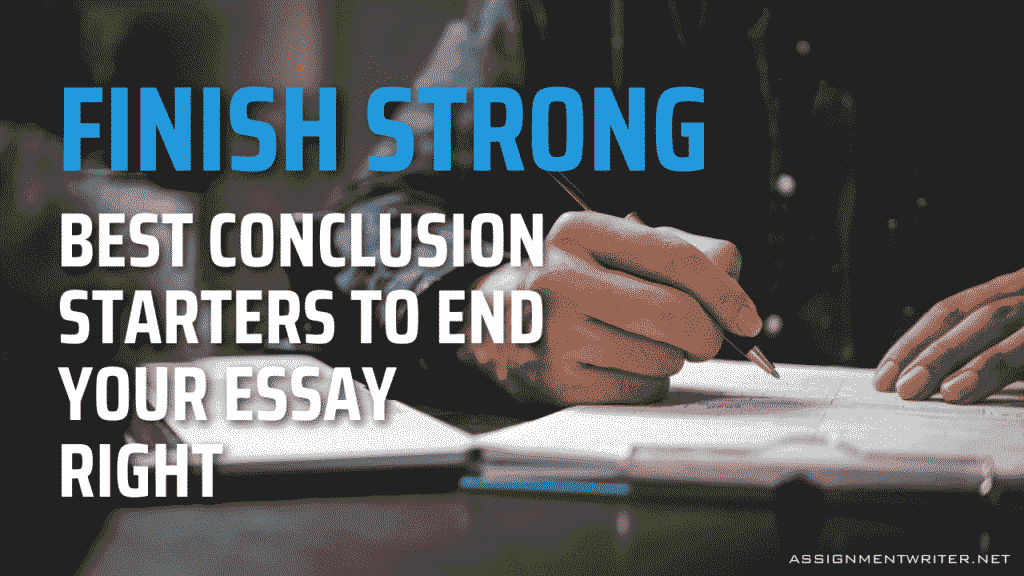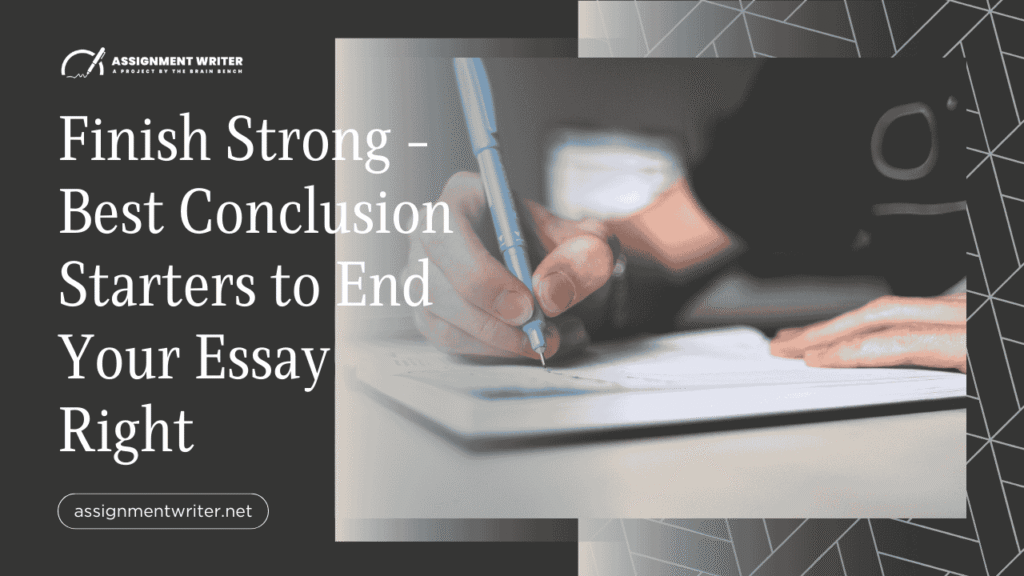Conclusion Starters to End Your Essay Right
Table of Contents
Toggle
The Role of Concluding Sentence Starters in Essay Writing
Conclusion starters are like a final handshake—firm, confident, and clear. They help tie your argument without repeating every word in the article. Analytical ones link evidence back to your argument. But you always need a strong conclusion starter to set up a satisfying finish.
Types of Conclusion Starters for Essays
Let’s be honest – you cannot end your conclusion the same everytime. What works for essays you were writing in college will not work for Blogs or articles that you’re writing casually for a website. That is why knowing your conclusion starters for essays isn’t about just starting your conclusion with random words.
Words like “Let’s leave it at this” or “To wrap things up” can sound better in these settings. One last option that you can use for both is ending sentence starters, and they fit well for both formal and informal writing – clear, purposeful, and just punchy enough to leave a mark. Think of it as a Mic drop joke at a standup show…Engage the audience and leave them thinking.

Best Words to Start a Conclusion Paragraph
The starting of your final paragraph should be spot on – it’s just like landing a plane on the runway – you want it smooth, confident and on target. You must always choose the right words to start a conclusion paragraph because, yes! The starting matters.
Conclusion Starting words can also be used as your essay’s closing words. They can set the tone. For example, if you are using words like “Clearly,” “Therefore,” or “All things considered,” it makes it absolutely clear that you’re wrapping things up not just getting off-topic.
For argumentative and persuasive essays, the ending matters the most because this is not just closing things up…It’s about supporting your arguments. This will leave the reader nodding, not getting back to question your argument.
Examples of Conclusion Starters (With Usage)
Finding the right words can feel harder than you think…Whether you need something formal or non-formal, here is a list of good conclusion starters that give you options that sound natural, not forced.
Formal Conclusion Starters
Best for academic, analytical, or research essays.
- “In summary”
- “To conclude”
- “Ultimately”
- “The evidence suggests that”
- “It can be concluded that”
Persuasive Conclusion Starters
- “Given the facts”
- “Considering the evidence”
- “Clearly, it is evident that”
- “This proves”
- “Therefore, one must agree”
Conversational/Creative Conclusion Starters
- “All in all”
- “So, what does this mean?”
- “When you think about it”
- “To wrap it up”
- “At the end of the day”
Some Conclusion Starters to Avoid
- “In conclusion”
- “As you can see”
- “In a nutshell”
- “In short”
- “Lastly”
Want a handy Conclusion Starter Cheat Sheet?
We’ve put together a free, printable list of over 50 powerful sentence starters categorized by tone, purpose, and essay type. Get it straight to your inbox — just drop your email below, and we’ll send it your way. No spam. Just writing help you’ll actually use.
Bonus Tips for Writing Strong Conclusions
- Rephrase your thesis – don’t repeat it
Say your main point in a new way to avoid sounding redundant. - Use intentional transition words
Choose natural closers that guide the reader toward the end.
Example:
Instead of: “To conclude,”
Try: “In short,” “All things considered,” or “Looking back.” - End with meaning, not fluff
Finish with a takeaway or reflection to leave an impact.
Final Thoughts on Choosing the Right Conclusion Starter
Choosing a strong conclusion starters is as important as writing the rest of the blog or article. It isn’t just about sounding smart – It’s about ending with the right purpose. It doesn’t matter what you are writing because the right face always makes all the difference. Go, for starters, that match your tone, feel natural and help your reader walk away with the main idea clearly in mind. Sometimes, a simple “In the end” says more than a flashy phrase could ever say.
Search
Recent Post
Categories
No Plagiarism | No AI A+ Grade Guaranteed


